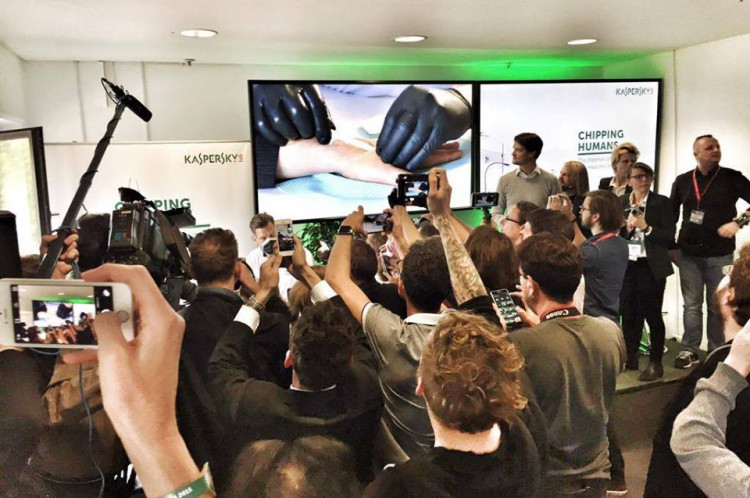A number of companies in the United Kingdom are reportedly convinced that microchipping their employees will provide the ultimate security protection against hack and data breach. The likelihood of requiring employees to have such implants, however, does not bode well with the countries' trade unions and labor sectors.
Microchip implants for humans started gaining traction when the practice became common in Sweden where as much as 4,000 citizens, including the younger ones, were already been microchipped.
Biohax, a Swedish company among the very first ones to provide chipping services, revealed to Telegraph that "a number" of UK firms from the legal and financial sectors have already reached out with plans to commission its services. The demand from UK firms were enough for the company to include plans of opening an office in London in 2019, said Jowan Osterlund, the founder of Biohax.
One of Biohax first potential client in the United Kingdom is a large financial services firm that employs "hundreds of thousands" of people, Osterlund told the Telegraph.
Osterlund said the companies that approached him need to safeguard sensitive documents and wanted o to restrict access to employees who will be microchipped.
Biohax offers chips which are only as big as a grain of rice. A chip is implanted in the area between the thumb and forefinger using a syringe. Osterlund said the process is painless and the chips are safe inside the human body. He said microchipping is in fact relatively safe than having ear or body piercing. Ultimately, the microchip implants are free from any form of a hack since it will sit beneath the skin.
Aside from Biohax, BioTeq said it also received inquiries from businesses and had in fact microchipped 150 people in the United Kingdom. Founder Steven Northam revealed to The Guardian that the 150 people it microchipped comprised of private individuals and employees from financial and engineering firms.
BioTeq also implants its chips in the area between the thumb and forefinger. The firm said it had implanted chips in one bank and had orders shipped to Spain, France, Germany, Japan, and China.
UK's Confederation of British Industry and the Trades Union Congress, on the other hand, both warned against microchipping employees.
A CBI spokesperson told The Guardian that the technological breakthrough could create an uncomfortable working environment.
TUC said it is concerned that companies will "coerced" employees into getting the implants. TUC secretary highlighted that technology currently available at the workplace are already sparking concerns on micromanaging and invasion of privacy. The implants may increase similar concerns, particularly if there will be pressure coming from the company for employees to undergo the microchipping process.






